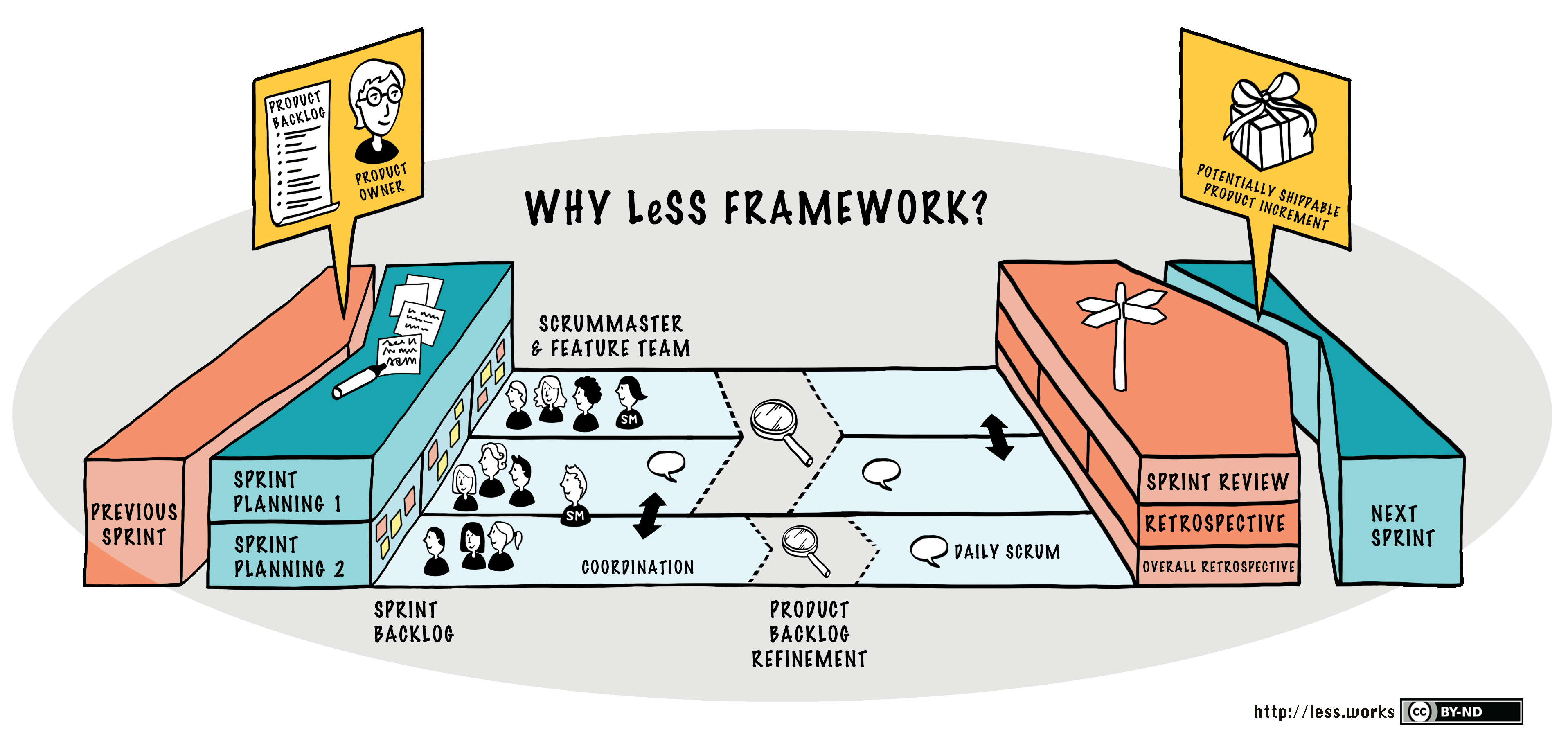Support for LeSS
No matter your approach to scaling agile, we're here to help.
Large-scale scrum (LeSS) best applies to large-scale software development. LeSS suggests scaling frameworks should be minimalistic to drive success. It’s based on the idea that providing too many rules, roles, and artifacts, while asking the organization to tailor it down, is fundamentally flawed. LeSS is divided into 2 levels: LeSS for 2-8 teams and LeSS-Huge for 8 or more teams. These levels are built using teams as the organizational building block.

LeSS teams follow typical rules of Agile with members consistently spending all their time on the same team. With LeSS, management plays a smaller role. The product owner drives the direction of the team and while the team determines how they will deliver what the product owner requests. The key principles of LeSS stress that you cannot scale Agile successfully across the organization if you don't follow the principles correctly first.
How Jira Align Supports LeSS
Sprint planning
After high-level planning is done, use the sprint planning feature to prioritize and task out stories, allocate work, and ensure you are planning against the right velocity/capacity.
Release planning
Organize all levels of work into larger themes and releases, set timing, monitor status, and roll up progress into real-time roadmap reports.
Retrospectives
Create a survey to gather sprint feedback and generate a retrospective report that can be shared with the team.
Scrum
Conduct daily standup meetings with teams, identify blockers, and record outcomes to share with absentees and drive actions at the team-of-teams (Program) level.
Scrum of Scrums
Use the Program Room for Scrum of Scrum meetings and capture action items and blockers that span teams.
CI/CD
Ensure the stability of your code base by integrating your favorite source management tools, such as GitHub and Jenkins.
Product backlog
Employ the Product Room to work in the backlog, then prioritize and assign stories across teams, sprints, and planning cycles. Visualize burndown and story allocation reports to track progress.
Lean UX/UI
Create Lean use cases and assemble them into experience maps to facilitate the design process and capture innovation into the backlog.
“Holy cow. This is the product we need. I can really see it for time in terms of how scaling agile is supposed to be and what we can really do to connect our overall strategy to what the teams are doing.”
Transformation leader
Nielsen Corporation
Explore the benefits for other roles
Portfolio management
Communicate the value of funding strategic initiatives to investors, analysts, and employees.
Product management
Manage idea intake, prioritize your feature backlog, and track progress with live roadmaps.
Program management
Track and resolve program risks, impediments, and dependencies while keeping everyone informed.
Release train engineers
Ensure programs run smoothly and resources are perfectly allocated to nail on-time delivery.
Finance
Ensure initiatives maximize value, right-size scope and stay within budget from end to end.
Executives
Drive enterprise value of your high-level mission and vision while connecting strategy to execution.
Transformation teams
Drive digital transformation with a framework customized to scale agile in your enterprise.
Delivery teams
Execute against sprint work that tracks back to your organization's high-level strategy.
Ready to connect your enterprise?
Software without silos enables end to end visibility